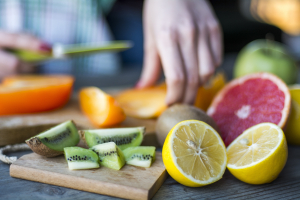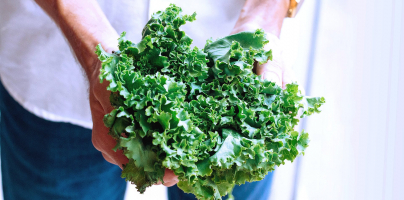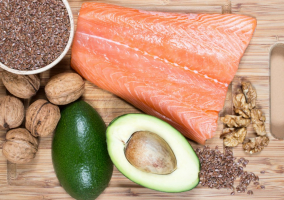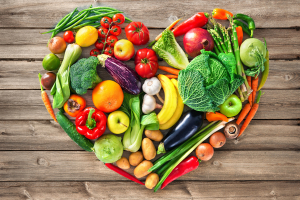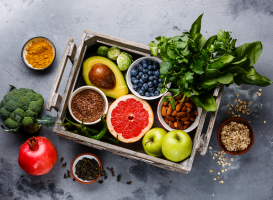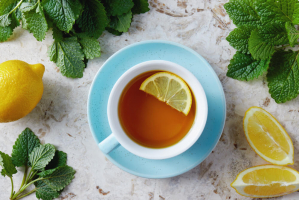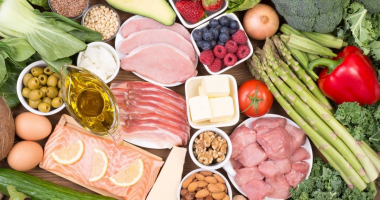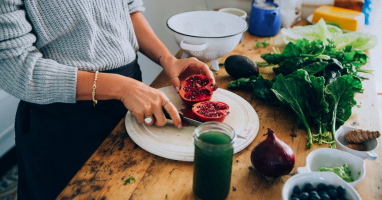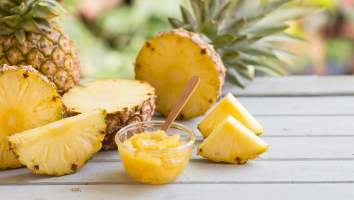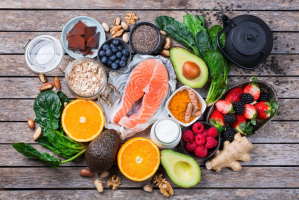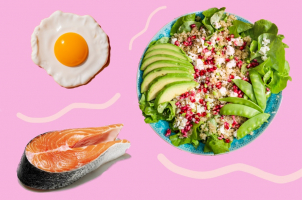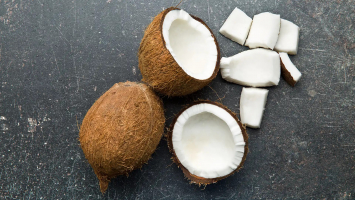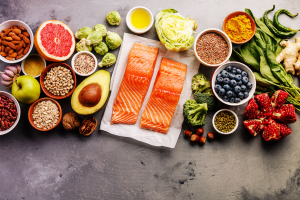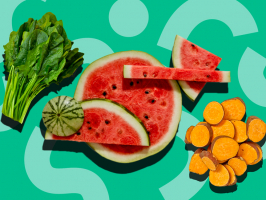Top 15 Water-Rich Foods That Help You Stay Hydrated
To satisfy your hydration needs, experts recommend drinking several glasses of water every day. While drinking water is crucial, you may also get it from food. ... read more...There are a lot of nutritious foods that might help you get a lot of water in your diet. Below are some of the Water-Rich Foods That Help You Stay Hydrated!
-
Lettuce offers a number of health-beneficial properties. In addition to 1 gram of fiber, one cup (72 grams) of lettuce contains more than a quarter cup (59 ml) of water. It also provides 5% of your daily folate requirements.
Folate is important for pregnant women since it helps to avoid neural tube defects. Furthermore, lettuce is high in vitamins K and A, both of which have been studied for their roles in maintaining the health of your bones and immune system. Furthermore, lettuce's combination of water and fiber makes it particularly filling for low-calorie food. A 1-cup (72-gram) serving has just 10 calories. Salads are a simple way to incorporate lettuce into your diet.
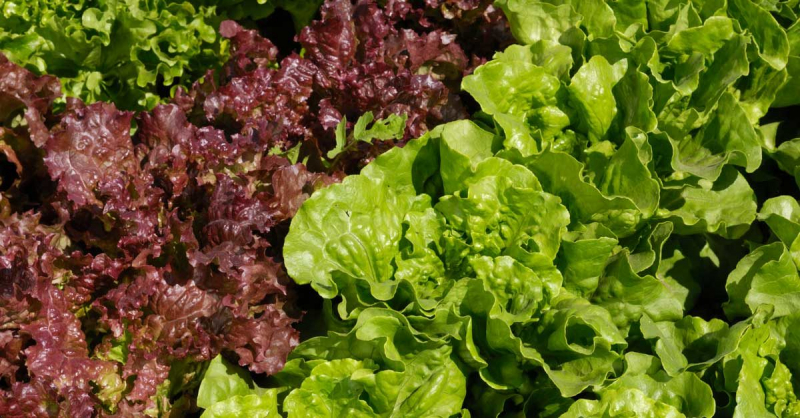
Lettuce 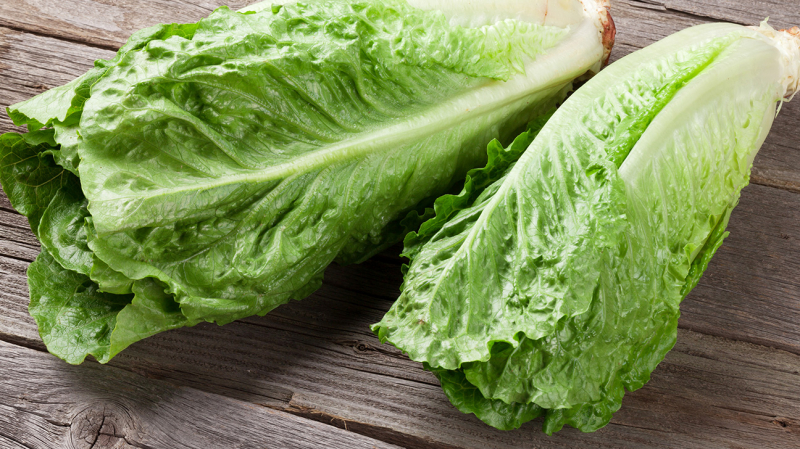
Lettuce -
Cucumbers are another hydrating and healthful food to add to your diet. They're nearly completely composed of water, with a small amount of vitamin K, potassium, and magnesium.
Cucumbers have the lowest calorie count of all the water-rich vegetables. A half-cup (52-gram) serving has only 8 calories and is highly refreshing due to its high water content. Cucumbers may be eaten in large quantities without adding a significant number of calories to your diet, which is beneficial for weight control. Cucumbers are simple to incorporate into your diet. They're frequently used in salads and sandwiches, but they may also be used in cooked dishes such as stir-fries and soups.
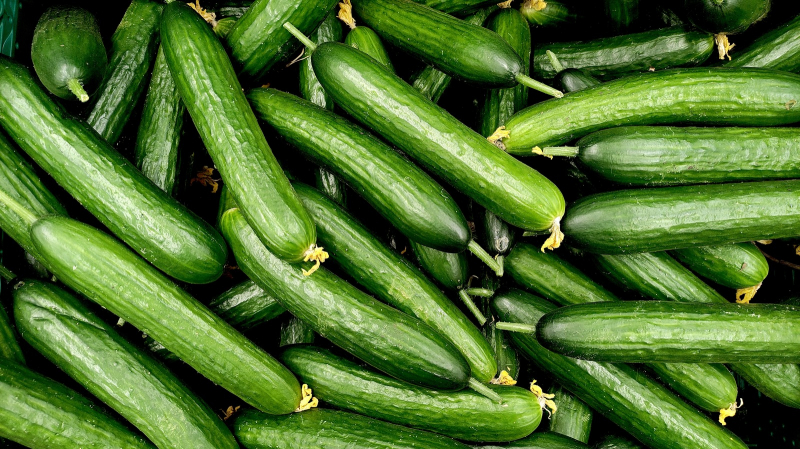
Cucumber 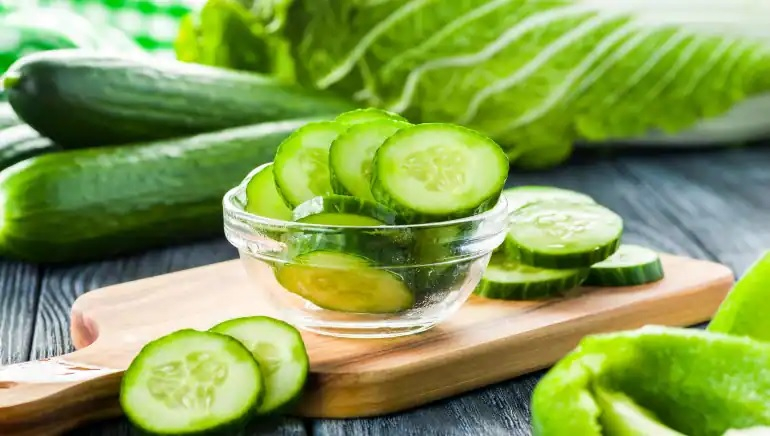
Cucumber -
Coconut water is a hydrating beverage that is extremely nutritious. It's not only high in water, but it's also high in electrolytes such as potassium, sodium, and chloride.
Coconut water has been demonstrated in studies to be effective in rehydrating. It's also believed to help exercise recovery because of its electrolyte content. Because many sports drinks are filled with added sugar and other unhealthy ingredients, drinking coconut water after exercise is a much healthier option than drinking a manufactured sports drink. A 1-cup (237-ml) serving of Gatorade, for example, has 13 grams of sugar, which is 50% higher than the same amount of coconut water.
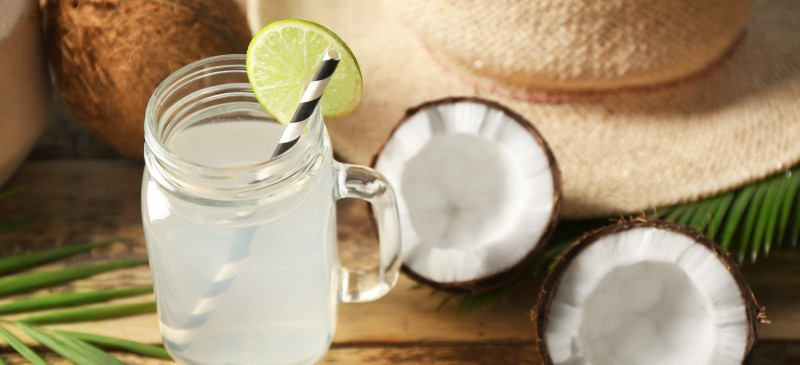
Coconut Water 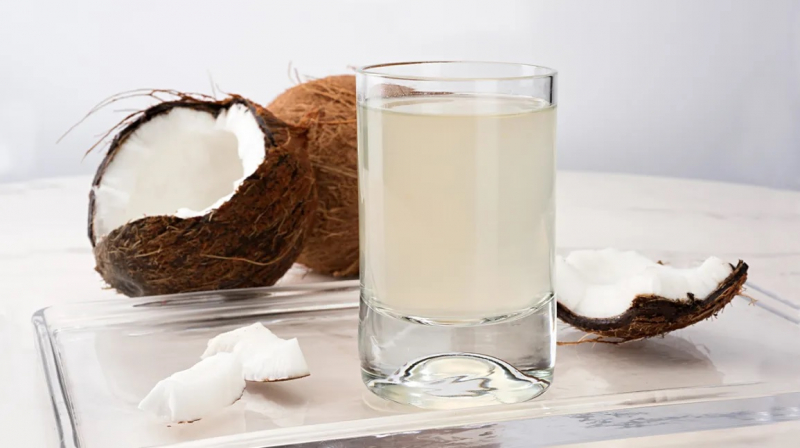
Coconut Water -
Celery is a hydrating and healthful food to incorporate into your diet. It's mostly water, with a 1-cup serving containing about half a cup (118 ml).
This helps to explain its low-calorie count of only 16 calories per cup. Celery, like other water-rich vegetables, maybe a great weight diet because of its high water content and low-calorie content. Celery also provides fiber and a variety of important nutrients. It's especially abundant in vitamin K and potassium, which may help protect against heart disease, cancer, and bone diseases like osteoporosis. Celery is easy to integrate into your diet because it may be eaten raw or cooked. You may eat celery sticks with a nutritious dip like hummus or Greek yogurt, or add it to soups and salads.
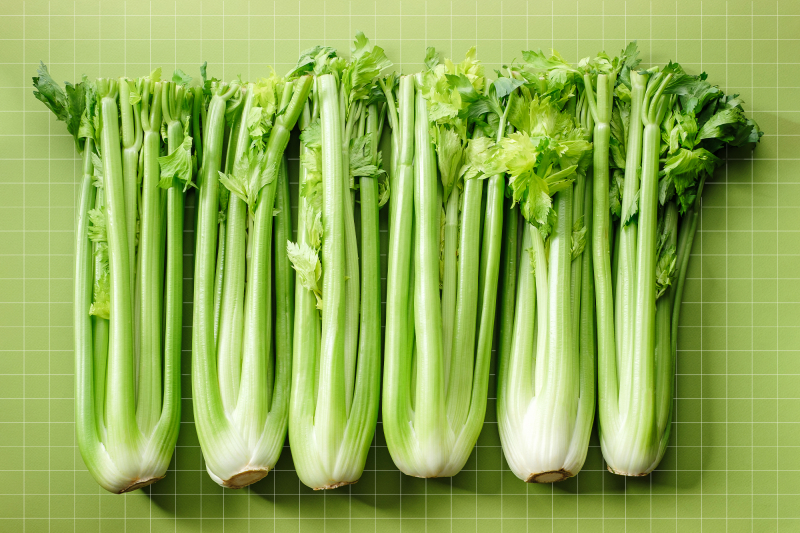
Celery 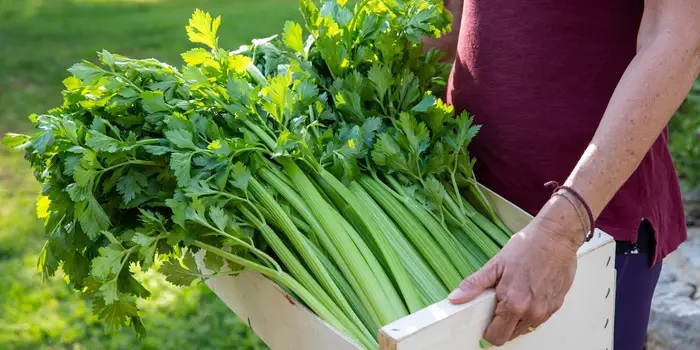
Celery -
Zucchini is a healthy vegetable with a variety of health benefits. Zucchini has a variety of vitamins, minerals, and antioxidants. It contains a lot of fiber and has a low-calorie count. Fiber is vital for digestion and may reduce the risk of a number of gastrointestinal problems.
A 1-cup (124-gram) serving of chopped zucchini includes over 90% water and contains 1 gram of fiber. Both of these components are excellent for keeping you satisfied. Zucchini is very low in calories by volume, with only 20 calories per cup due to its high water content (124 grams). Zucchini contributes a variety of nutrients to your diet, particularly vitamin C, since one cup (124 grams) supplies 35% of your daily requirements. Vitamin C is necessary for a healthy immune system and may help to reduce the risk of a number of diseases.
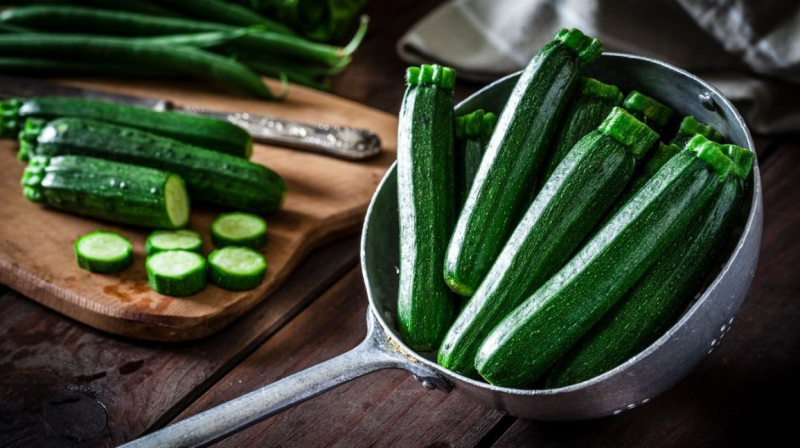
Zucchini 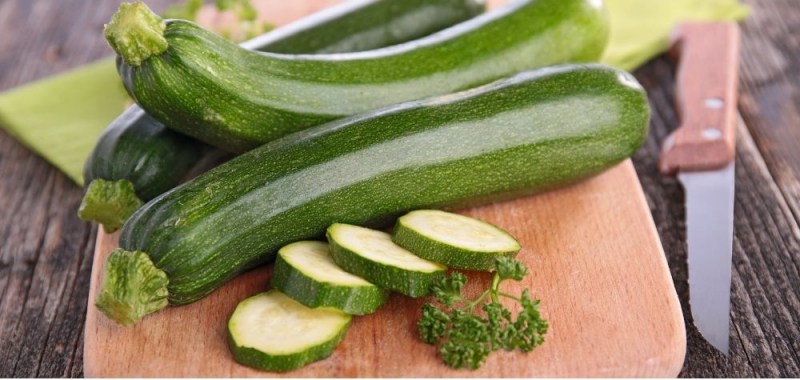
Zucchini -
Tomatoes have a high nutritional profile and may provide a variety of health benefits. A half-cup (118 ml) of water may be obtained from one medium tomato. It also has a lot of vitamins and minerals, including immune-boosting vitamins A and C.
Tomatoes have a low-calorie content due to their high water content, with only 32 calories in a 1-cup (149-gram) serving. Tomatoes are also high in fiber and antioxidants like lycopene, which can help fight disease. Lycopene has been studied for its ability to reduce the risk of heart disease and may even help prevent prostate cancer. Tomatoes are delicious in soups, sauces, and a variety of other foods. They're also commonly used in salads and salsa recipes.
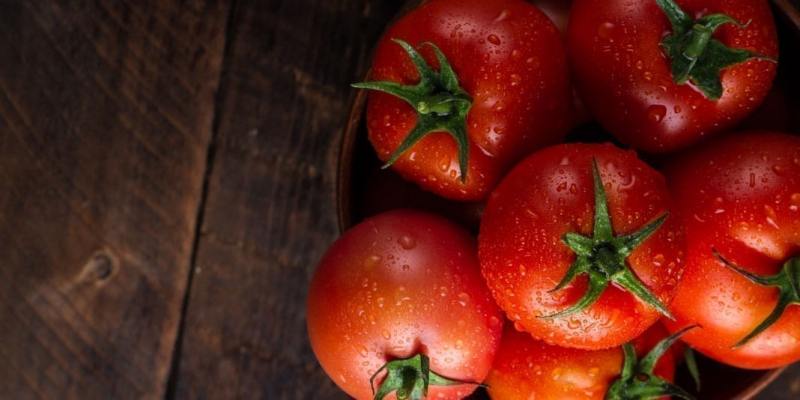
Tomatoes 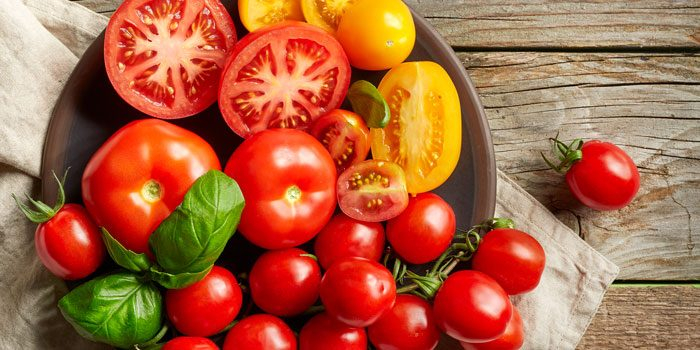
Tomatoes -
Watermelon is a healthy food that is also one of the most hydrating. A 1-cup (154-gram) meal contains more than half a cup (118 ml) of water, as well as fiber and other vital nutrients like vitamin C, vitamin A, and magnesium. It also has a low-calorie count, with only 46 calories per cup.
Watermelons have a low-calorie density due to their high water content. That means that a large portion of watermelon has a low-calorie content. Low-calorie-density foods have been demonstrated to help weight reduction by increasing fullness and reducing appetite. Watermelon also contains a lot of antioxidants, including lycopene. The ability of this compound to reduce oxidative damage to cells, which has been linked to diseases like heart disease and diabetes, has been studied. Watermelon may be used as a refreshing snack or side dish to add variety to your diet.
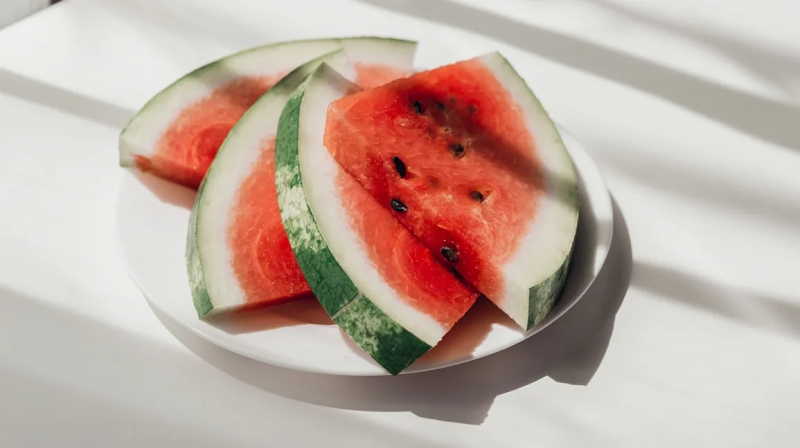
Watermelon 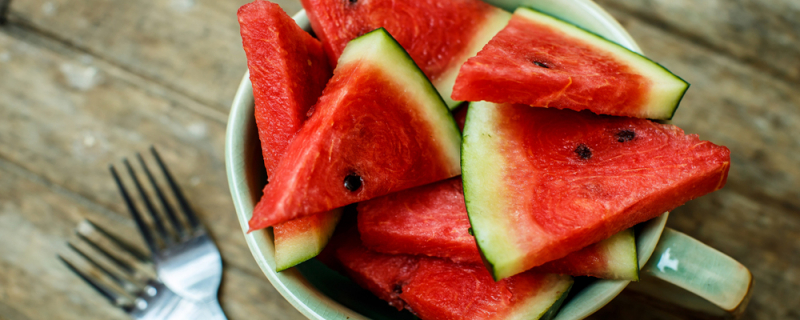
Watermelon -
Cauliflower is a highly healthy and hydrating vegetable that you should include in your diet. Cauliflower contains more than one-fourth cup (59 ml) of water and 3 grams of appetite-suppressing fiber in one cup (100 grams).
With only 25 calories per cup, its high water content contributes to its low caloric intake. Cauliflower also contains more than 15 vitamins and minerals, including choline, a nutrient that isn't found in many foods. Choline is a vitamin that is necessary for brain function and metabolism. Cauliflower may be used to substitute less hydrating grains by finely chopping it into "rice" or making a cauliflower-based pizza crust.
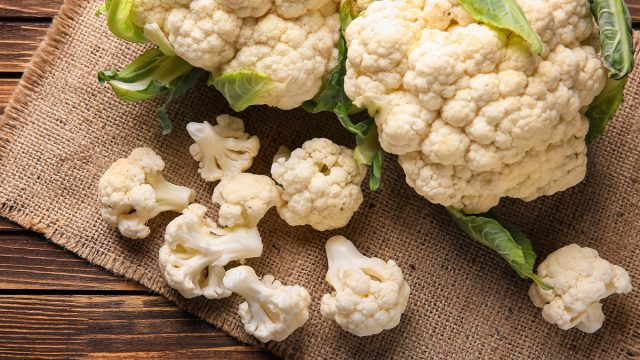
Cauliflower 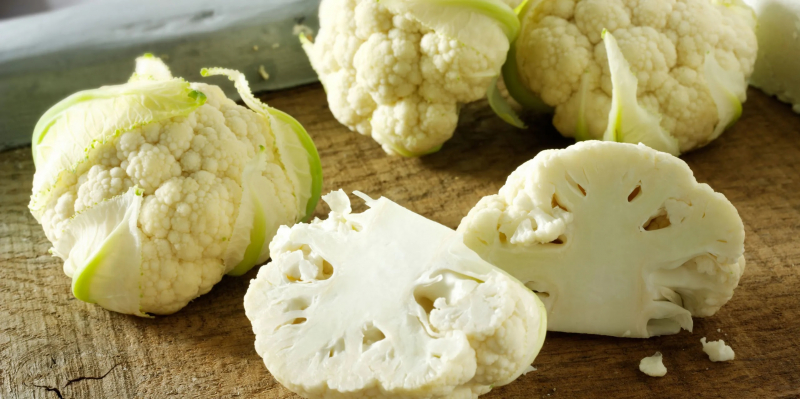
Cauliflower -
Bell peppers are another highly nutritious food that has a wide range of health benefits. Water makes up more than 90% of the weight of bell peppers. They're high in fiber, vitamins, and minerals including potassium and B vitamins. Bell peppers are also high in carotenoid antioxidants, which may help prevent cancer and eye disease.
Furthermore, when compared to other fruits and vegetables, bell peppers have the largest quantity of vitamin C, giving 317% of your daily needs in only one cup (149 grams). Vitamin C not only helps your immune system, but also helps your body absorb iron more efficiently, supports bone health, and protects your cells from the damaging effects of free radicals. Bell peppers are low in calories, with only 46 calories per cup, due to their high water content (149 grams). This means you can eat a lot of them without feeling like you've overeaten. Bell peppers may be included in your diet in a variety of ways. They may be eaten raw in salads, cooked with sauces, or stir-fried.
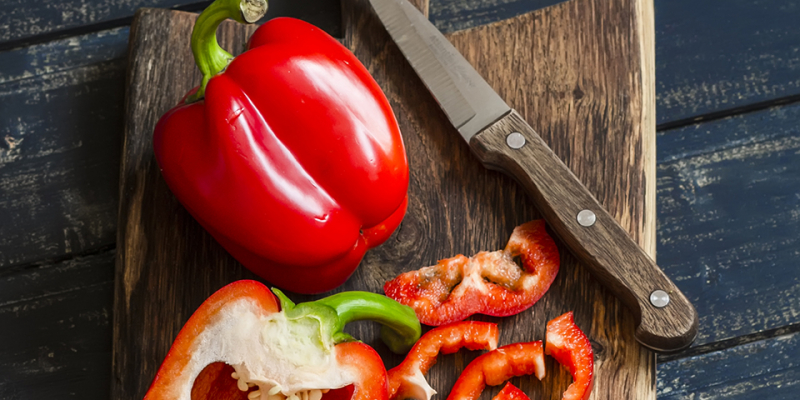
Bell peppers 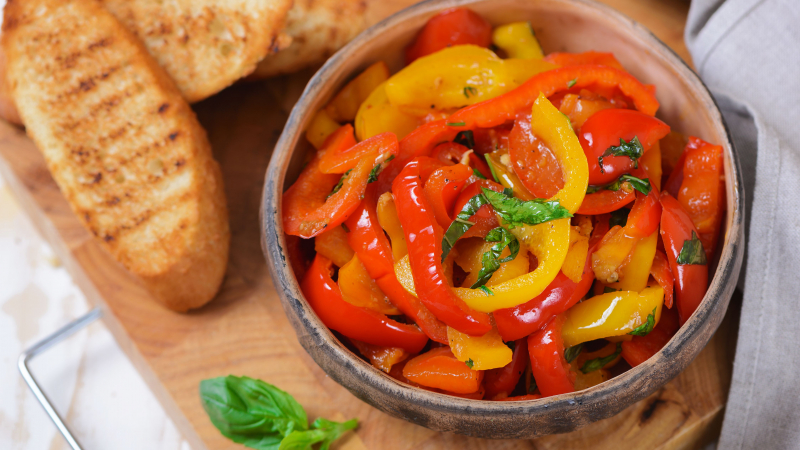
Bell peppers -
Broths and soups are often made with water and may be highly hydrating and nourishing. 1 cup (240 grams) of chicken broth, for example, is almost completely composed of water, providing a significant amount to your daily hydration needs.
Due to their low-calorie content, consuming water-rich foods like broths and soups on a daily basis may help you lose weight. Many studies have discovered that those who eat soup before the main dish of a meal consume fewer calories and so have a lower daily calorie consumption. Participants who ate two servings of low-calorie soups per day lost 50% more weight than those who consumed the same number of calories from snack foods in one research. Broths and soups may be made more nutritious by adding a variety of vegetables, such as broccoli, carrots, onions, mushrooms, and tomatoes.
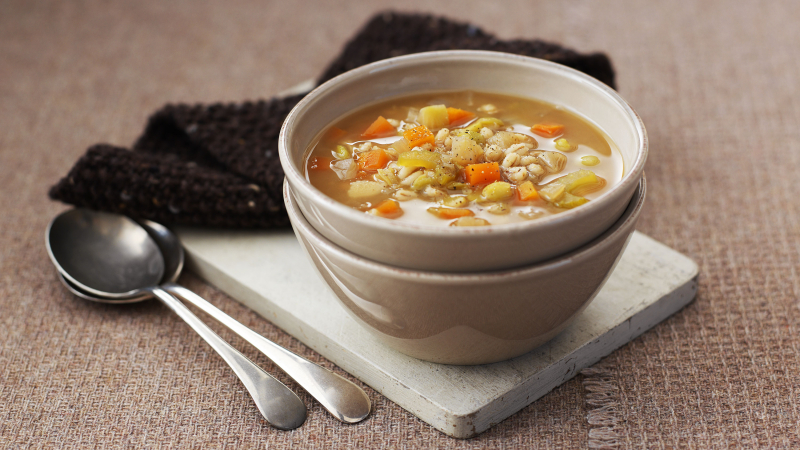
Broths and soups 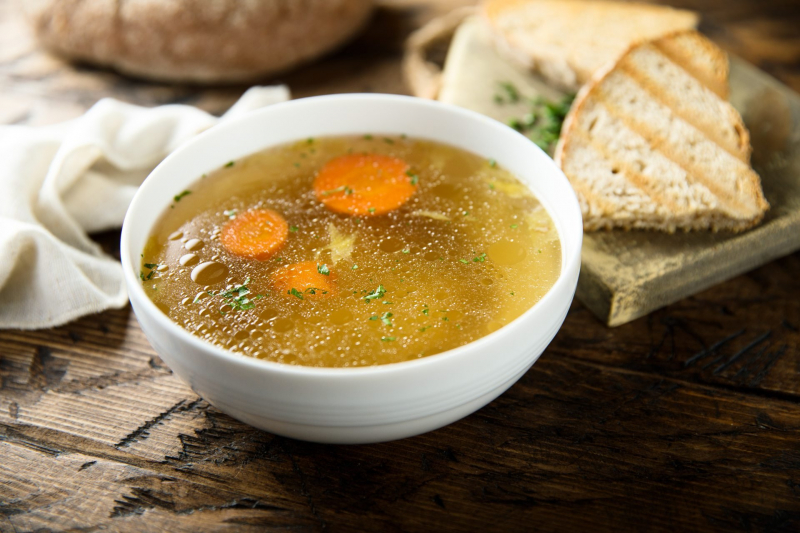
Broths and soups -
Cabbage is a cruciferous vegetable that is extremely healthful. It has a low-calorie content but is abundant in fiber and nutrients. It's also high in vitamin C, vitamin K, folate, and a number of trace minerals, all of which may have health-promoting properties.
Vitamin C, for example, is widely recognized for its anti-inflammatory properties and has been demonstrated to reduce the risk of chronic diseases such as diabetes and heart disease. Cabbage also contains glucosinolates, which are antioxidants that are considered to protect against some cancers, such as lung cancer. In addition, cabbage is commonly fermented into sauerkraut, which is high in water and may help with digestion.
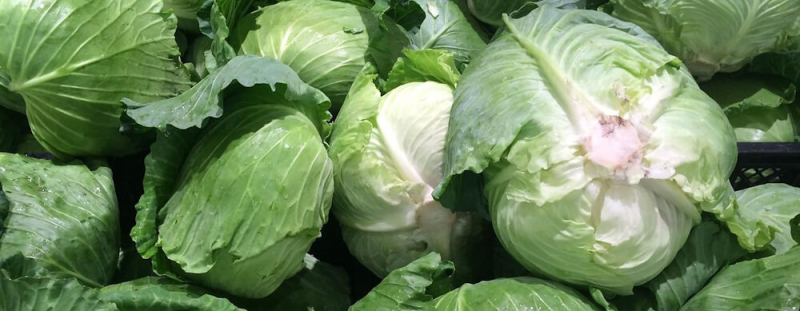
Cabbage 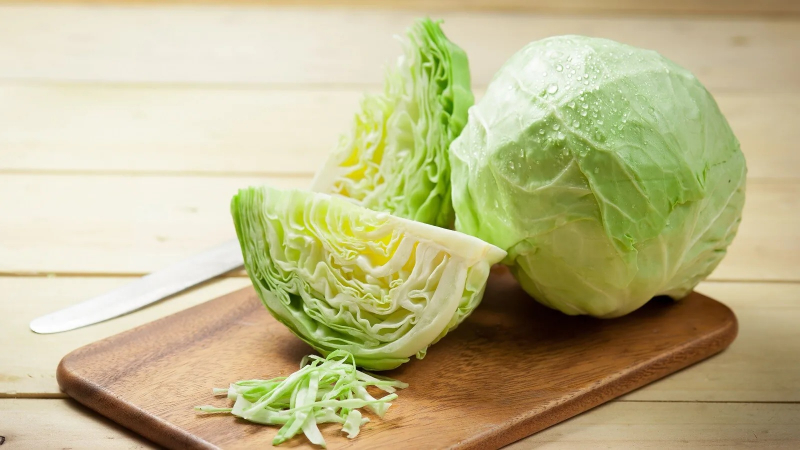
Cabbage -
Skim milk is high in nutrients. It's largely made up of water and contains a lot of vitamins and minerals including vitamin A, calcium, riboflavin, vitamin B12, phosphorus, and potassium.
Milk not only helps in overall hydration, but it may also help in the hydration process after strenuous exercise. Low-fat milk, especially compared to sports drinks or plain water, has been demonstrated in a few studies to help people keep hydrated after an exercise. This is due in part to milk's electrolytes and protein content, which may help in rehydrating the body. Milk is simple to incorporate into your diet because it is commonly available and reasonably priced.
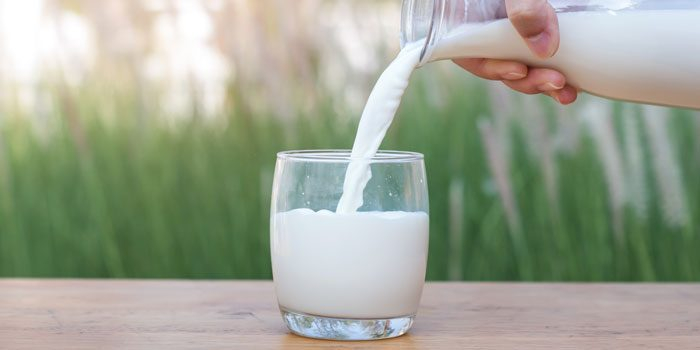
Skim milk 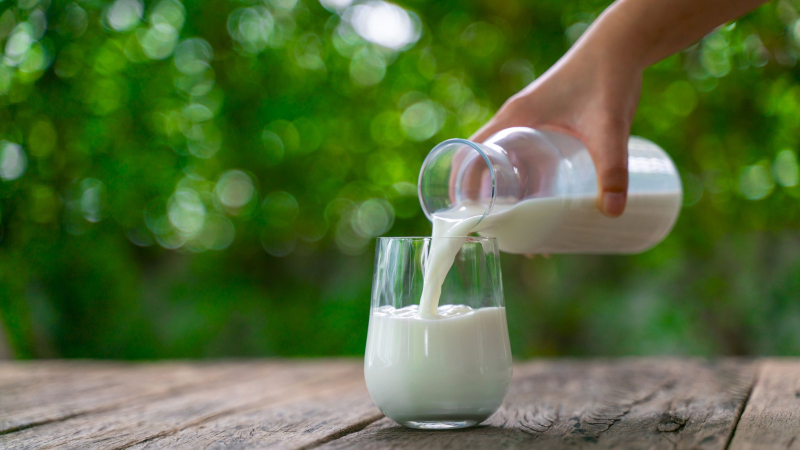
Skim milk -
The strawberry, Fragaria, is a member of the rose (Rosaceae) family and one of the most popular berry fruits in the world. Strawberries are also a hydrating food because of their high water content.
Because water makes up 91% of the weight of strawberries, eating them will help you meet your daily water requirements. Strawberries also include a lot of fiber, disease-fighting antioxidants, as well as vitamins and minerals including vitamin C, folate, and manganese. Regularly eating strawberries has been found to lower inflammation, which can help protect against heart disease, diabetes, Alzheimer's, and other cancers. Strawberries may be easily incorporated into your diet by blending them into smoothies or adding them to salads.
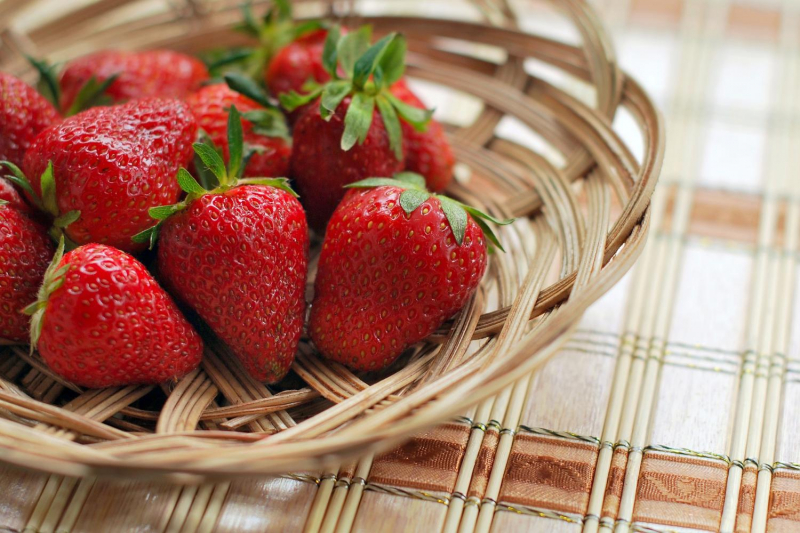
Strawberries 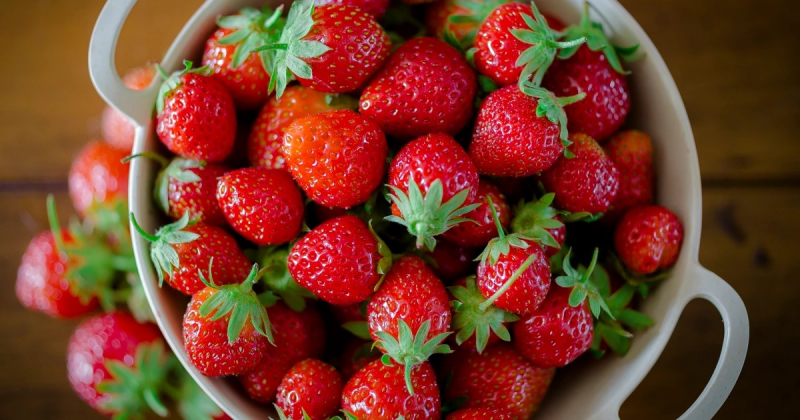
Strawberries -
Cantaloupe is a melon that is high in nutrients and may benefit your health in a variety of ways. One cup (177 grams) of cantaloupe contains roughly 90% water and provides more than half a cup (118 ml) of water per serving.
One cup of cantaloupe also provides 2 grams of fiber, which, when combined with water, increases fullness and suppresses hunger. Cantaloupe is also high in vitamin A, with a 1-cup (177-gram) serving to deliver 120% of your daily needs. Vitamin A has been found in studies to improve immune health by protecting against infection. Cantaloupe can be eaten plain or mixed with salads, smoothies, yogurt, or salsa. It's also a great breakfast side dish.
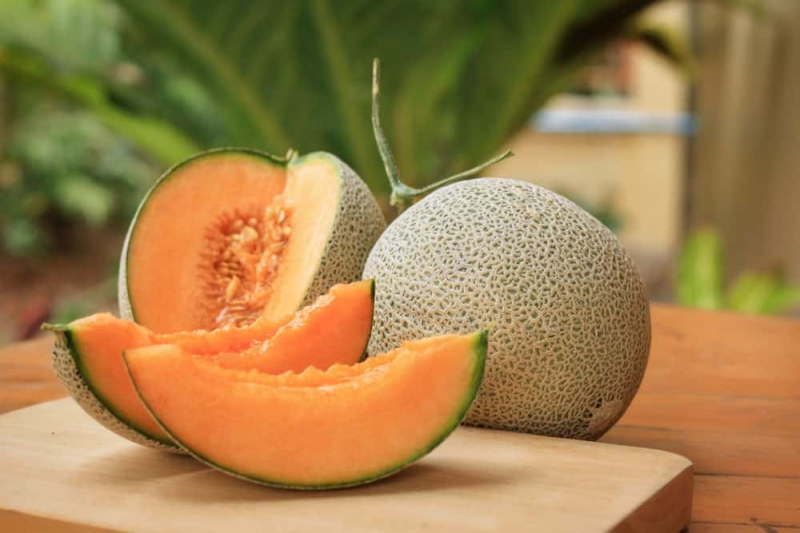
Cantaloupe 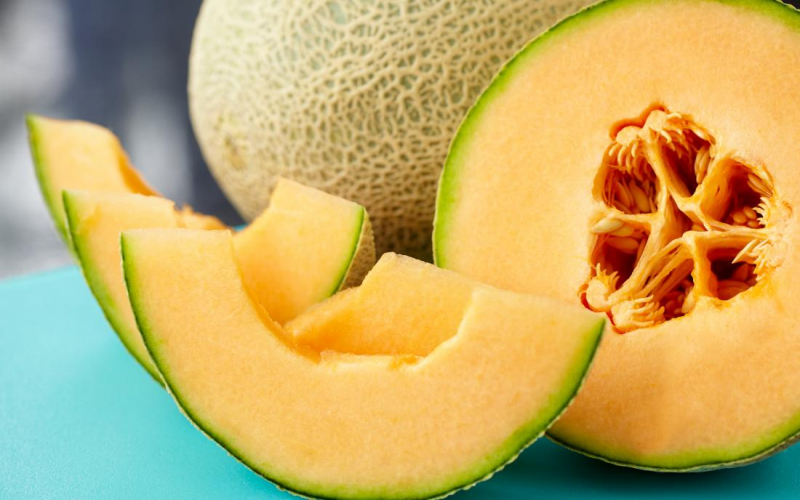
Cantaloupe -
Peaches are a hydrating and nutrient-dense fruit. Water makes up over 90% of their weight. Vitamin A, vitamin C, B vitamins, and potassium are among the vitamins and minerals found in them.
Additionally, eating peaches with the skin on may provide disease-fighting antioxidants such as chlorogenic acid. Peaches are filling and low in calories due to their high water and fiber content, with only 60 calories in a medium peach. Peaches are easy to incorporate into your diet. They're typically used in smoothies and salads, and they also go well with cottage cheese and yogurt.
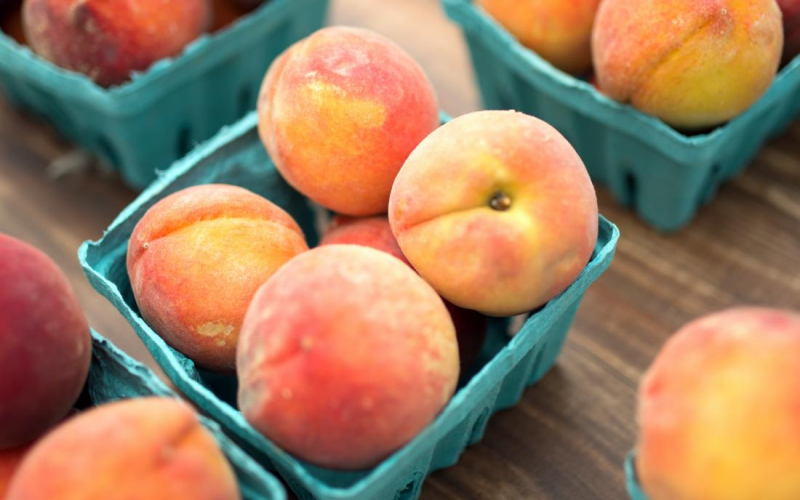
Peaches 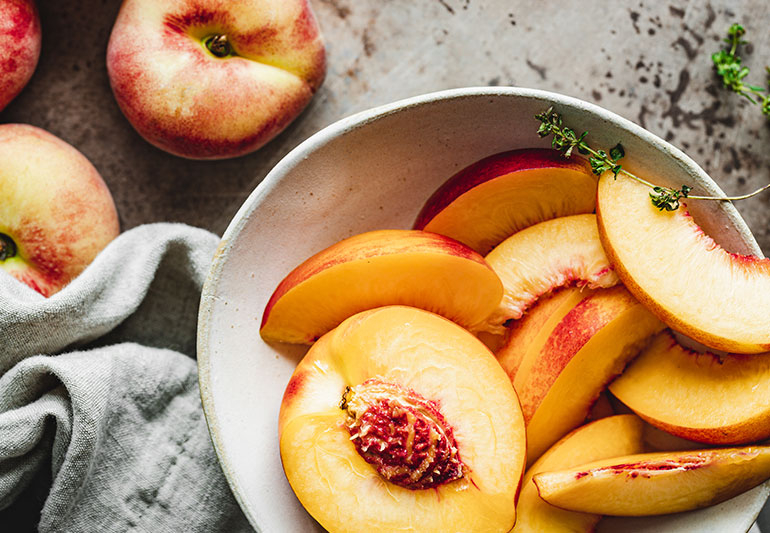
Peaches

















